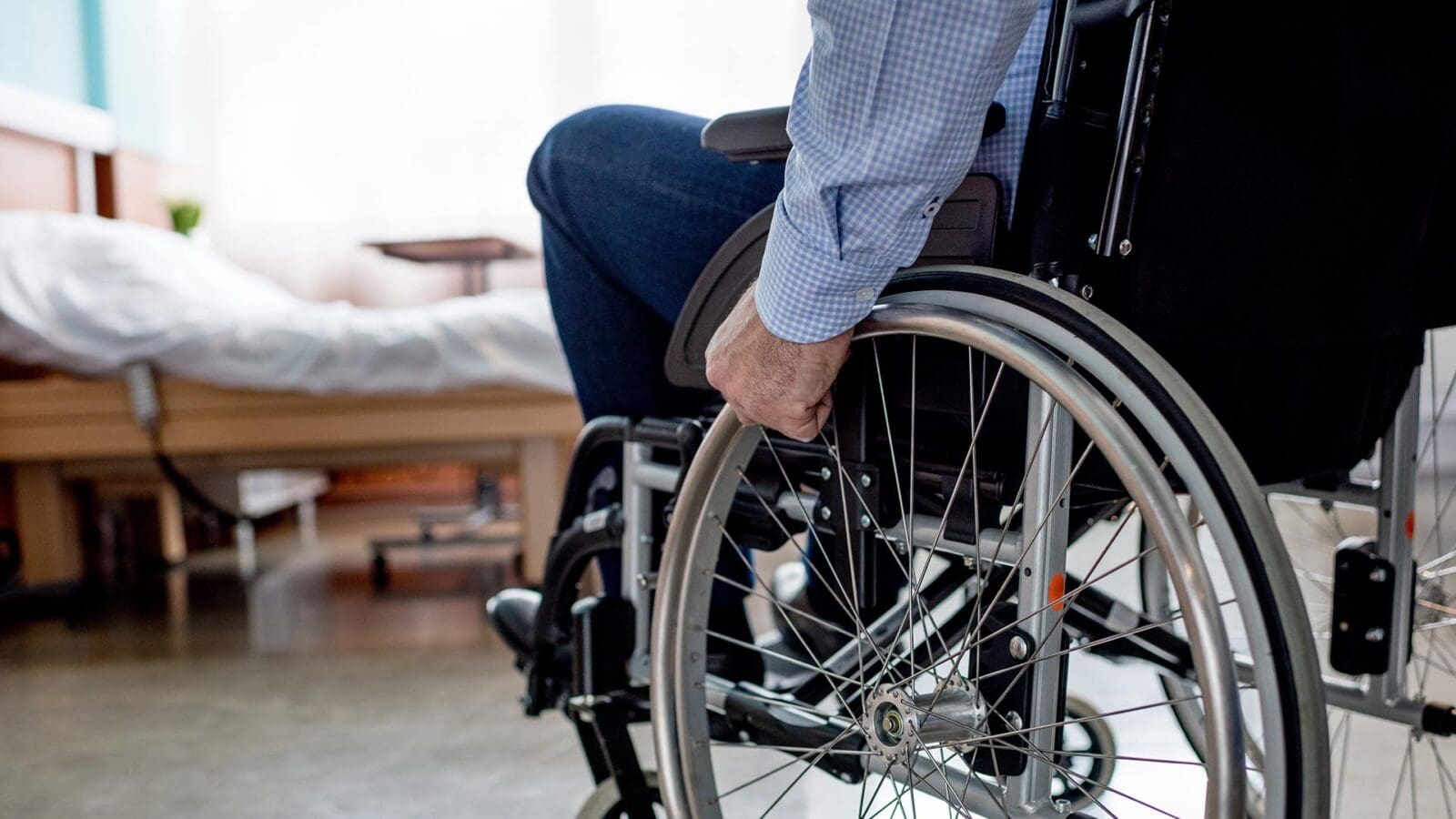
Veteran Spinal Fusion Claim Denial | VA Disability Appeals Attorney
Navigating VA Disability Rating for Spinal Fusion, What Veterans Need to Know.
Spinal fusion is a surgical procedure that involves the use of bone grafts and metal plates, screws, and/or rods to immobilize and strengthen an area of the spine that has been damaged by disease or injury. The goal of spinal fusion is to eliminate motion at the site of the damage to promote stability and relieve back pain. If you’re a veteran who has had this surgical treatment, you may be eligible for VA disability for spinal fusion. However, VA benefits have become increasingly complex in the last few years. Constantly changing regulations and processes can be perplexing, and keeping up with them can be challenging. A knowledgeable veteran disability lawyer can assist you in obtaining the compensation you deserve for your spinal fusion claim, even if you’ve already received a denial.
DID YOU RECEIVE A DENIAL FROM VETERAN AFFAIRS FOR YOUR SPINAL FUSION CLAIM?
You and your family will be at a tremendous disadvantage if the VA denies your disability claim for spinal fusion. Thankfully, veterans are able to appeal VA disability claim denials. The VA has streamlined its appeals process, resulting in shorter wait times for a decision on your claim.
Once you have received a denial, working with a skilled VA disability attorney can increase your chances of securing the benefits that are owed to you. Your attorney will manage the entire process so that all you need to worry about is attending your medical appointments.
HOW DOES THE VA CALCULATE THE RATING FOR SPINAL FUSION?
The VA assigns a rating to spinal fusion in the same way it rates other diseases of the spine, basing its rating on a veteran’s range of motion as defined by 38 CFR § 4.71a, Schedule of Ratings – Musculoskeletal System (Diagnostic Code 5241).
The disability ratings for spinal diseases range from 10% for minor conditions to 100% for severe impairment of the entire spine. Veterans with a smaller range of motion will generally receive a higher disability rating.
What is impacted, your entire spectrum of symptoms, and what has the most substantial influence on your daily life will establish your rating and diagnosis. The VA is mandated to give you the highest possible rating for your symptoms.
Have your rating decision examined by an experienced VA disability lawyer after receiving it. This will ensure that the VA did not make any mistakes in your records. Even if the mistake was made decades ago, a qualified VA disability attorney may be able to help you appeal to collect your benefits. Click here to view the latest 2022 VA disability rates.
COMMON CAUSES OF SERVICE-RELATED SPINAL FUSION
Back pain is a very common ailment that veterans face during and after military service. Because servicemembers frequently carry and lift heavy equipment, hold uncomfortable positions for long periods, practice their skills in combatives and in evacuating casualties, and even parachute out of airplanes, the physical demands of military service can take a toll on the spine. In addition to the daily strain, military accidents such as explosions and vehicle crashes commonly result in temporary or permanent damage to the spine.
After leaving military service, you may find that the lingering pain in your back has made it difficult to conduct your day-to-day activities or perform well at work. If a doctor is able to identify the source of your back pain, spinal fusion surgery may be recommended for treatment.
Spinal fusion permanently joins at least two vertebrae in your spine to improve strength and stability, fix a distortion, and/or relieve discomfort. The following conditions are a few examples of diagnoses that may necessitate spinal fusion:
Scoliosis and Spinal Deformity
Scoliosis is a condition in which the spine is twisted or curved, and spinal fusion is performed to align the vertebrae. Scoliosis and other spinal deformities can occur due to injuries sustained during military service.
Weakness, Instability, and Arthritis in the Spine
Arthritis in the back can lead to spinal instability due to excessive or unusual motion between the vertebrae. In such circumstances, a spinal fusion treatment can restore spinal stability. Arthritis in the spine can occur or be worsened due to injury or from years of strain from lifting and/or carrying heavy equipment, maintaining unnatural positions for long periods of time (such as while conducting surveillance or pulling security), and other service-related tasks.
Herniated Discs
The discs between your vertebrae provide cushion, but they can rupture. After having a herniated disc removed, undergoing a spinal fusion procedure may be helpful to restabilize the spine. A veteran may suffer from a herniated disc due to incidents such as rollover accidents, blast injuries, and falls, as well as from years of wear and tear while conducting military duties.
HOW IS SERVICE CONNECTION ESTABLISHED FOR SPINAL FUSION?
Veterans must establish that spinal fusion was a necessary treatment for back injuries sustained during their military service in order to be eligible for disability benefits for spinal fusion. The VA requires the following three things to establish a direct service connection:
1. A diagnosis for a disease of the spine necessitating spinal fusion surgery treatment
2. Evidence that while on duty, there was an incident, injury, or illness
3. A documented nexus establishing a link between the back ailment and the documented incident, injury, or illness
The medical nexus is the most crucial component. This is the piece of the puzzle that demonstrates a service connection to the VA. Without a medical nexus, your claim will be denied.
To establish a service connection, you will first need to collect all of your pertinent medical records that show the progression of your back pain. Even if you had back discomfort prior to joining the military, your records can prove that your condition worsened because of your military service. You will then need to collect documentation about the incident(s) that occurred during your military service that relates to your back pain. Obtaining a buddy statement from people you served with can help establish a link between your diagnosis and your military service.
Frequently Asked Questions
CAN YOU GET VA DISABILITY FOR SPINAL FUSION?
Yes. If you’re a veteran who had spinal fusion surgery to treat back pain or certain diseases of the spine, you may be eligible for VA disability compensation. A VA disability lawyer can ensure that you receive the maximum allowable compensation. Contact us now for a free case review.
WHAT IS VA COMPENSATION FOR SPINAL FUSION?
If you can establish a medical nexus between your spinal fusion and your military service, you may be eligible for VA disability compensation. The amount of your compensation depends on both your disability rating, which will range between 10-100% and the number of dependents you have. However, if you have a combined rating of 10% or 20%, the VA will not count your dependents toward your payments.
DOES SURGERY INCREASE VA DISABILITY?
Recovery time from surgery necessitates a temporary 100% disability rating for a service-connected impairment. Depending on your specific situation, the temporary 100% percent rating could last anywhere from one to three months while you are healing. After this time, your disability rating will be revisited by the VA.
CONTACT A VA DISABILITY LAWYER TODAY
A Veteran Disability Lawyer’s role is to assist you throughout the confusing and often frustrating appeals process if you have gotten a denial on your claim for a service-connected spinal fusion. Generally, you need to be denied at least once before an attorney can assist, but once a lawyer is involved they will often be able to quickly determine what needs to be done in order to prove entitlement.
If your VA disability claim for spinal fusion has been denied, be sure to contact the VA Accredited Attorneys at VetLaw right away to help make sure you get the entitlement you deserve.



